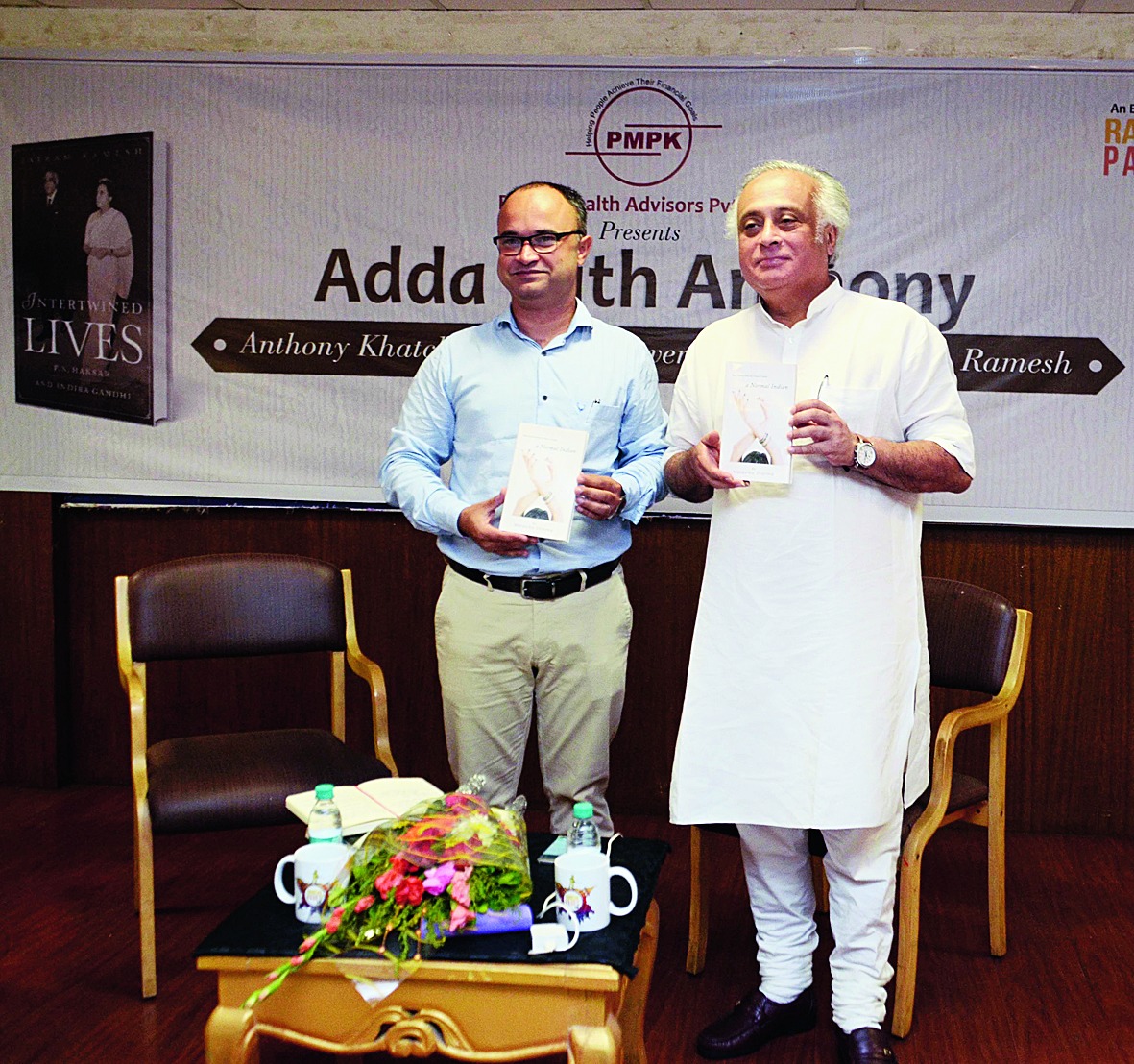
Ranchi: A party's loss is readers' gain.That's what comes to mind when a Congress member and former Union minister declares he wrote half a dozen books when he was out of the cabinet for four years.
"I wrote six books in four years since I became unemployed in 2014," Jairam Ramesh said at Chamber Bhavan on Sunday afternoon, adding that his latest book Intertwined Lives: P.N. Haksar and Indira Gandhi could well be his last if he again became "employed next year".
Ramesh was interacting with historian Anthony Khatchaturian at Adda with Anthony presented by PMPK Wealth Advisors and revolving around his latest book.
The conversation was followed by an open house.
"Haksar was a charismatic personality who, as an adviser, was behind every important things Indira Gandhi is identified with," Ramesh said, listing those important decisions and events as the nationalisation of banks, coal mines, refineries and insurance companies, abolition of privy purses to princely states, surrendering of the Pakistani army in Dhaka, birth of Bangladesh, Simla Agreement of 1972 and the signing of an agreement with the USSR.
On why Indira appointed a diplomat as her principal secretary, Ramesh said, "They knew each other since 1930s and had immense mutual respect."
He said Indira and Haksar differences over only one issue.
"Haksar preferred strengthening the public transport system over producing passenger cars and felt Sanjay (Gandhi) shouldn't manage the production of Maruti cars from the Prime Minister's residence," he said, adding that very few in the bureaucracy would dare to point that out.
Sanjay was the first managing director of Maruti Motors Ltd.
Ramesh said Haksar was Indira's ideological compass and moral beacon from May 1967 to January 1973 when he retired. "However, Haksar had nothing to do with the decision of imposing emergency in the country," he added.
On being pointed out that biography, which often becomes a hagiography, was not widely respected as a literary genre, Ramesh said he never used any information somebody told from memory or simply guessed.
"I agree that many deify their subjects while writing biographies, but I solely depended on written archived materials," he said.
During his conversation with Anthony, he also answered some questions about Jharkhand.
"Ranchi was a microcosm of India even when I studied at the local St Xavier's School for three years about four decades ago," he said about the capital.
On ways to improve the condition of the farmers in the state, he said the entire cultivable land must be brought under irrigation and provisions of the Forest Rights Act 2006 should be implemented.
"Powers promised to municipalities and gram sabhas must also be transferred for empowering people in the true sense," Ramesh added.










